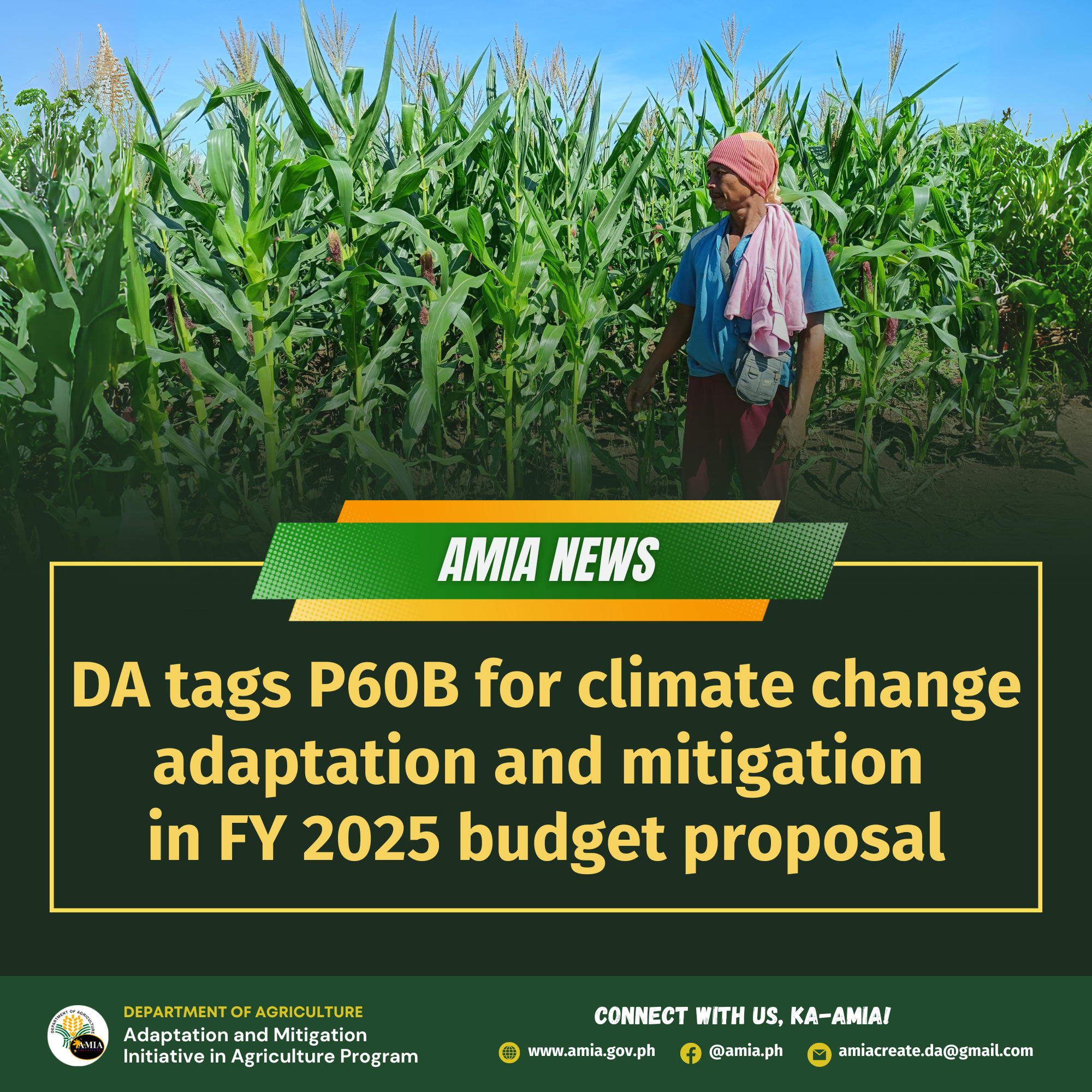
The Department of Agriculture (DA) has tagged approximately Php 60 billion for climate change adaptation and mitigation in its FY 2025 budget proposal.
The amount, which constitutes 33.4 percent of the DA Office of Secretary’s proposed budget for FY 2025, has been tagged under the Climate Change Expenditure Tagging (CCET) initiative.
The CCET tracks programs and projects that help address and alleviate problems posed by climate change. Institutionalized by the Department of Budget and Management (DBM) and the Climate Change Commission (CCC) in 2013 through a Joint Memo Circular, it is a framework and a tool that tracks government climate change expenditures at the national and sub-national levels.
Recognizing the fundamental importance of implementing adaptation and mitigation projects for the agriculture sector, the bulk of the climate change expenditures tagged in the DA is allocated for the transformation of the agri-food systems towards climate resilience.
DA Climate Resilient Agriculture Office (CRAO) Director Alicia G. Ilaga explained that DA’s investment in climate resiliency is part of the Department’s efforts to mainstream relevant climate change concerns under the National Adaptation Plan (NAP) and the Nationally-Determined Contributions Implementation Plan (NDCIP).
Strategies under the NAP 2023-2028 – Agriculture and Food Security and Water Resources relevant to DA have been included in the work plans of the Department.
In terms of the NDCIP, while the Philippine agriculture sector commitments are conditional, the DA also has current initiatives that contribute to the attainment of the Philippines’ overall commitments.
Under the United Nations Framework Convention on Climate Change (UNFCCC) Paris Agreement, conditional commitment for NDC implementation means it is dependent on the provision of means of implementation—including but not limited to scaled-up provision of climate finance, capacity building, and technology transfer—by developed countries, who are the biggest emitters of greenhouse gasses. This is based on the climate justice principle of common but differentiated responsibility. Highly-vulnerable countries like the Philippines have a miniscule GHG emission causing the climate crisis and, therefore, should be assisted by high-income countries, which are the biggest climate polluters. (Joy F. Calvar, DA CRAO)
